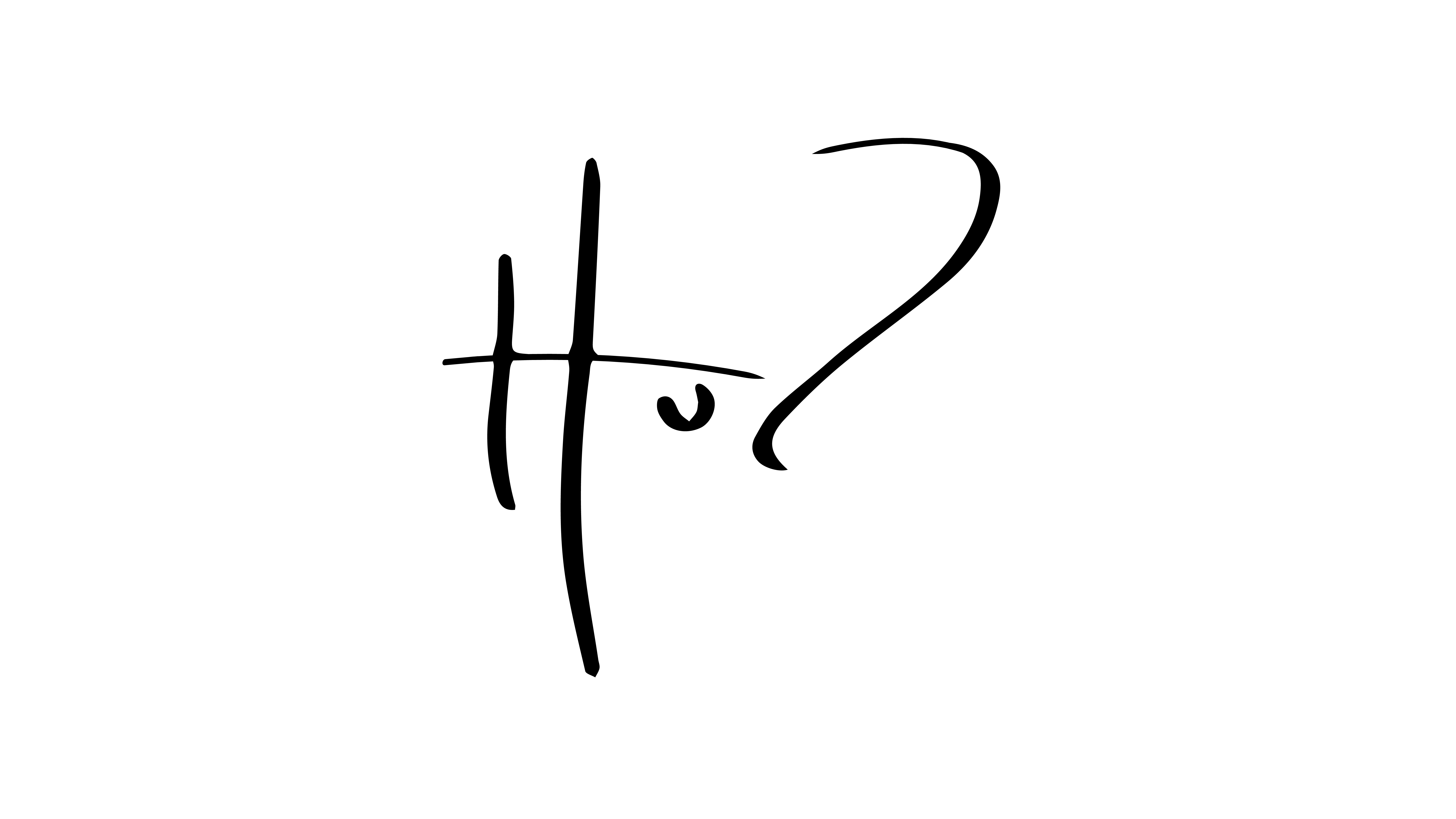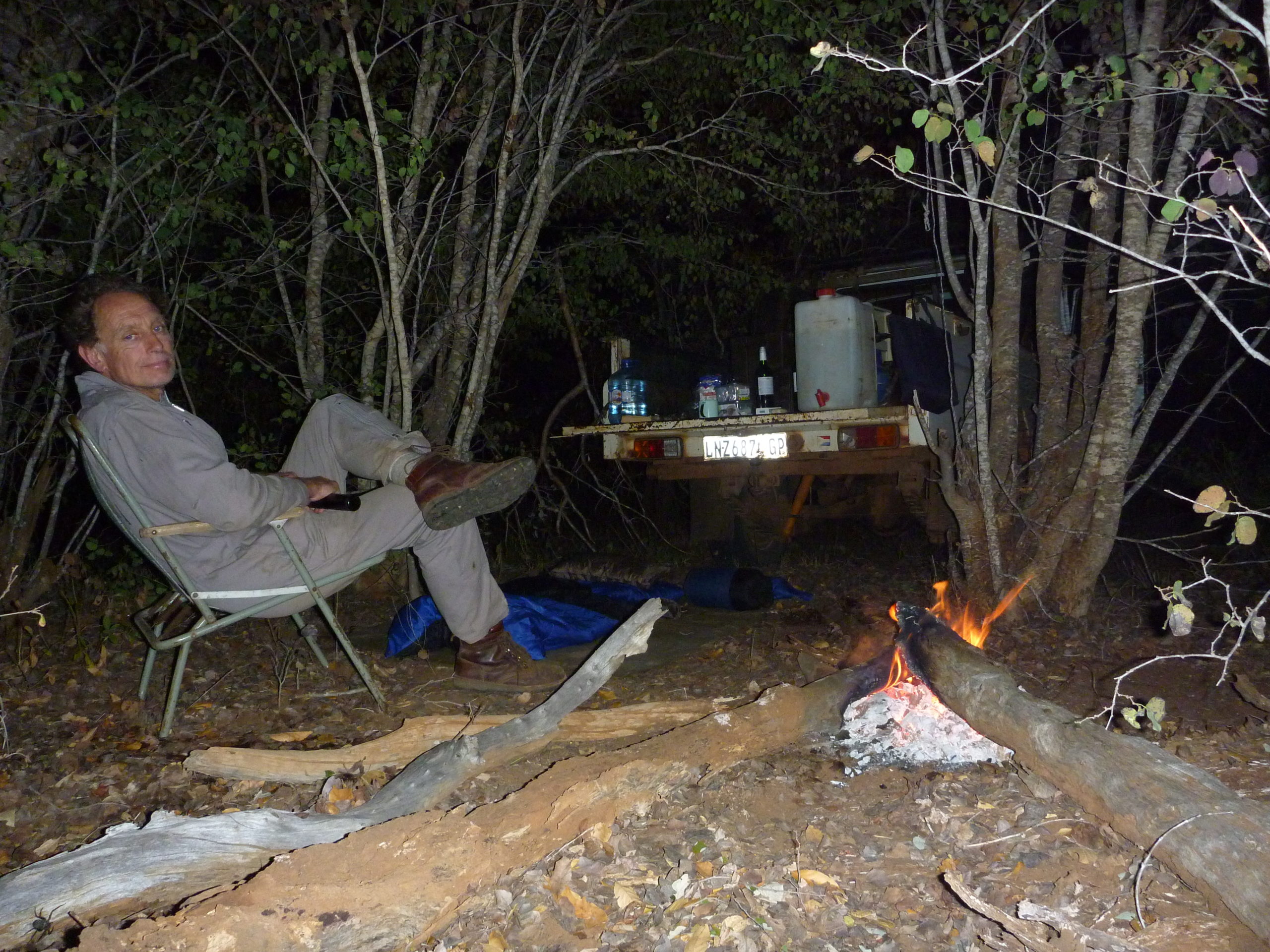Reaching the wild hinterlands from the South African heartland is an undertaking of anything between two to five days. The first day or so is usually like the average citizen of the civilised world would expect a road trip to be. But then, as one penetrates deeper into the Middle World the journey takes on a special character.
The driving itself is the same, although navigating the roads and tracks requires submission to torture by vehicle (and of course to the vehicle), resilience and often quite some skill. The facilities and services however, such as finding petrol, or overnight accommodation, normally taken for granted, start to become uncertain and finally disappear altogether – or take on a form that is, however charming, hardly recognisable and of limited utility to the traveller from the civilised world.
Definite overnight stops are however a necessity, as a break from road torture. I find resting somewhere in the bush some five hundred metres to a kilometre off the road far preferable to making use of the “facilities” – and there are usually none.
But that is not entirely without its challenges. As the sun sinks, the time to find a place to overnight draws closer. It is a trade-off between not wanting to lose travelling time, and finding a suitable spot before it gets too dark to prepare for the night. I tend to delay till too late and then the choice inevitably deteriorates from the hoped-for spot with a generous tree and a nice view to a forced compromise between the on-coming darkness and the least bad spot. What makes it a bit more complicated for me is that I try to find an area where no people live within five kilometres (preferably more) – I have always much preferred sleeping among wild animals to sleeping among people.
Once an overnight place has been decided upon, preparation for the night is simple, here in the Middle World. No need to worry about predators – except, perhaps, some allowance for two-legged ones, if I couldn’t find an area far enough away. Else it is only gathering some wood for a fire, slinging the hammock and maybe having a tiny shower if the day’s travelling had involved some heavy and sweaty work.
The simple meal is postponed till after dark. The last bit of light is for sitting back and watching the sun set and letting the glass of wine and the stillness smooth out the sinews and the neurons that hours of clattering and juddering had drawn into tight knots. It is a time for reflection on the Middle World sampled during the day. It is never a focussed or particularly deliberate reflection; just an easy meandering of the mind as it wills, likely to resume later while I lie gazing up at the stars shifting past the lacework of the canopy above me.
Yes, what of the grandiose scheme to clear hundreds upon hundreds of hectares of savannah to plant maize, or soy, or perhaps wheat that I had driven past? It was now lying fallow, or carried but a few anaemic stalks of maize. Was it an especially bad idea from some politician or over-ambitious bureaucrat? Or were those left behind to take it forward unable to follow the right practices because they did not know them, or found them too alien to their natural inclinations? Or could they perhaps not attract the cash to properly finance the new crops, and then just left the land and returned to their earlier ways? Probably nobody cares to remember the answers now, least of all the bush, which was slowly claiming back the raped land, a few metres every year.
Or, what about the many cattle, goats and donkeys that wandered along and across the national highway with a kind of oblivious nonchalance? There were no fences on the sides, nor were there for many tens, maybe hundreds of kilometres, right into the wilderness, and lion and leopard territory. The animals were unbranded and bore no other identification marks that I could see, but they were generally good quality livestock, each worth a considerable sum. I knew cattle to be prized possessions in Middle World societies, but how could the owners know where they were, or which belonged to whom? How did they know their condition, whether they were perhaps sick, or had calved, for example? How did they care for them, treat them for parasites or illness? In hundreds of kilometres I had not seen a single cattle pen or press. They had to drink somewhere, so perhaps the owners sat waiting for them at the waterholes. But, they would typically come in drips and drabs, and in the rainy months not at all – there would be many places where they could drink, including from puddles forming along the roadside. Yet, the area was known as a major beef-producing area, so the practices here had some success? As a cattle rancher myself with a fairly well-organised and regulated operation, this was hard to get my head around.
And then there was the policeman at the road block. “Prepare to stop” a makeshift sign held (not quite) upright with piled stones and logs said, and then ”Stop.” The “stoppers” lounged in chairs in the shade of a generous tree. They waited till I had settled well into my “Stop” before one detached himself from his chair and sauntered over importantly.
His greeting was jovial. “Gut aftanun sah, haw a yu?” “I am well thank you. How are you?” “Gut, gut.” He peered at the vehicle and at the bush-battered trunks and equipment in the load bin. “Are you weking here?” His manner was official, slightly suspicious. They had discussed me as I came up and decided this was some basic service contractor. Maybe doing fencing or boreholes in the area. “No, I am on holiday.” He wanted to know where I was from and where I was heading. “I am from South Africa. I am going to the central Kalahari.” At another time it might have been “The Ruvuma,” or “The Save.” Such people need departure places, and destinations, however vague, and numbers and durations. That is how they operate. I gave it as he asked it, just it, no more, no less.
He placed his hand on the battered mudguard, almost in a caress. His manner was suddenly wistful. “Very strong car, this one.” The interrogation was over. I was more or less harmless, or unimportant. “Yes, but it is old.” He looked interested. “How old.” “Older than you” – he was thirty-something, I guessed. “Aa, but still ver strong.” “Yes.” “How much the price?” There was something hopeful in his tone. “Something that is not for sale does not have a price.” “You can’t sell it?” “No. I told my children, when I die, they must load me on this car and bring me here, to the bush, and dump me under a tree for the jackals and the hyenas to eat. Maybe read a poem.” He looked at me incredulously for a moment. “Eish sah, have a sef jany. ” “Thank you officer. Good luck to you.” The answering waves from his two colleagues were spontaneously friendly as I pulled away. I watched him in the rear-view mirror. He remained standing in the middle of the road, hands on his generous hips, staring after me.

